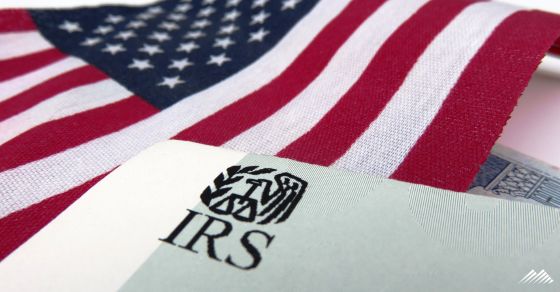Key Tax Provisions for Individuals and Businesses in OBBB

Several of the topics highlighted below are complex in nature. JCCS strongly encourages clients to contact their accountant if they have any questions or concerns regarding the 2025 Tax Act contents. The Act is dense, and we cannot effectively elaborate on every detail in this article.
On July 4, President Trump signed the 2025 Tax Act, also called the One Big Beautiful Bill (OBBB), into law. The Act makes tax cuts from the Tax Cuts and Jobs Act permanent and provides additional tax relief such as child tax credits and small business deductions. New tax breaks for workers are included, and individual energy tax credits like the Clean Vehicle Credit are eliminated in the Act, according to Thomson Reuters.
With the passage of this large and complex bill, we realize our clients may have questions and concerns. We recommend reviewing your current tax strategy in light of these proposed changes. Our team is available to discuss how these provisions may impact your personal or business tax strategy.
This article highlights parts of the Act. We will continue sharing articles with additional details as more updates and guidance are released from the IRS. While news and analysis are already being published on the OBBB, JCCS will not sacrifice accuracy and understanding for the sake of rapidity. When it comes to tax law changes, we pride ourselves in being diligent and process oriented.
We’ve highlighted some of the major provisions of the Act below.
Individual Tax Relief
- SALT deduction cap: The state and local tax (SALT) deduction cap is raised to $40,000 per household in 2025 and will increase 1 percent each year through the end of 2029. The deduction will have phaseout limitations for high earners.
- Domestic car loan interest deductions up to $10,000 will be allowed for taxpayers regardless of whether they take the standard or itemized deduction.
- New Tax-Deferred Investment Accounts for Children (aka ‘Trump Accounts’): To be eligible, a child must be a U.S. citizen and have a Social Security Number. Contributions from parents and others are limited to $5,000 after-tax dollars annually. In a Newborn Pilot Program, the federal government will contribute $1,000 per child for children born between January 1, 2025, and December 31, 2028.
- No tax on tips and overtime: For 2025-2028, above-the-line deductions are created for qualified tips (in certain occupations) and for overtime premium pay, subject to income and occupation limitations. The tip income deduction is up to $25,000 per year per taxpayer.
- Standard deduction amounts will increase, along with child tax credits and other dependent credits.
- Charitable deduction changes for itemizers: Starting in 2026, the Act will provide for a floor of 0.5 percent of the taxpayer’s contribution base (normally this is adjusted gross income) on the charitable deductions of individuals. This means an otherwise deductible charitable contribution will now be reduced by 0.5 percent of an individual’s contributions base for the tax year. This floor is similar in nature to the 7.5 percent floor used for deducting medical expenses.
- Charitable deduction changes for non-itemizers: Starting in 2026, the Act will allow non-itemizers to claim a below-the-line deduction for cash-only charitable donations made to a public charity. The maximum deduction amounts are $1,000 for single filers and $2,000 for joint filers. This deduction will help reduce adjusted gross income before arriving at taxable income.
Business & Investment Incentives
- QBI deduction: The Sec. 199A qualified business income (QBI) deduction is made permanent, and the deductible amount for each qualified business increased.
- Bonus depreciation: 100 percent expensing (bonus depreciation) for qualified property restored for certain properties.
- Sec. 179 expensing: The maximum amount a business may expense is increased and the phaseout threshold is raised.
Energy & Environmental Changes
- Clean energy provisions: Several energy credits will be eliminated, including the Energy Efficient Home Improvement Property Credit (terminated for properties placed in service after Dec. 31, 2025), and the Clean Vehicle Credit (terminated for vehicles acquired after Sept. 30, 2025).
- Wind energy credits will be terminated after 2027.
Health & Education
- Eligibility for the Premium Tax Credit (PTC) will become stricter.
- All taxpayers will have to repay any excess advance PTC payments in their entirety. Repayment caps based on household income will no longer apply.
Estate & Gift Tax
- Estate and gift tax exemption: The increased exemption is made permanent and raised to $15 million per individual ($30 million for married couples) in 2026, indexed for inflation.
Compliance & Reporting
- 1099 filing thresholds will be raised to $2,000 starting in 2026.
- New penalties & extended assessments for fraudulent Employer Retention Credit (ERC) claims.
- 1 percent excise tax on outbound remittance transfers.
Thomson Reuters and the AICPA contributed to the content of this article.

